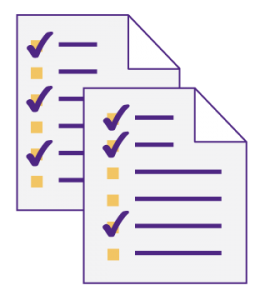Hopefully, you have visited with your administrator about the formal evaluations. He or she can share the number of times you’ll be formally observed and the process.
Usually, you’ll have a pre-evaluation meeting, followed by the formal observation. After that, you’ll likely have a formal meeting. For this part, make sure you complete any required forms. In many districts, you’re required to provide a detailed lesson plan (and possibly a one-page, brief version), seating chart, a brief narrative regarding the class, and copies of any materials you use during the class. Include anything to help him or her “see” what’s going on in the class—and anything to simplify the process.
You’ll probably find that, if you’ve built a relationship with your students, they’ll step up during the formal observation to help you succeed. Be sure to appreciate how they jump in to respond to your questions, sit still when they need to be sitting still, etc. We’ve rarely see students (big or small) misbehave intentionally during a formal observation.
For the pre-observation and post-observation meetings, share strengths and weaknesses. A good administrator will listen to your self-evaluation and help you strengthen the areas you believe need some help. Much like you work with your students, he or she should be eager to help you succeed.
As a new teacher, you will find an administrator may visit your room anytime. (It’s even been known for a superintendent to make an impromptu visit to a classroom now and then, as well.) The best way to prepare for that is to make sure you’re ready every morning. Often, it’s best to take a few minutes at the end of the day to set up for the following day’s classes. Get your materials photocopied, organized, etc., so you don’t have to do any searching as the students arrive in your classroom the next morning.
These evaluations early in your career are extremely typical. If anything, consider it a sign of support—that your administrators want to make sure you’re doing well in your classroom and want to know if there are steps they can take to help you be successful.
After the first year, the pressure of evaluations eases up quite a bit—especially if you’ve proven you’re qualified and comfortable in the role of a classroom teacher.
Am I right, second-year teachers? Are you remembering the butterflies of that first evaluation? Be sure to email and share some of your thoughts!
